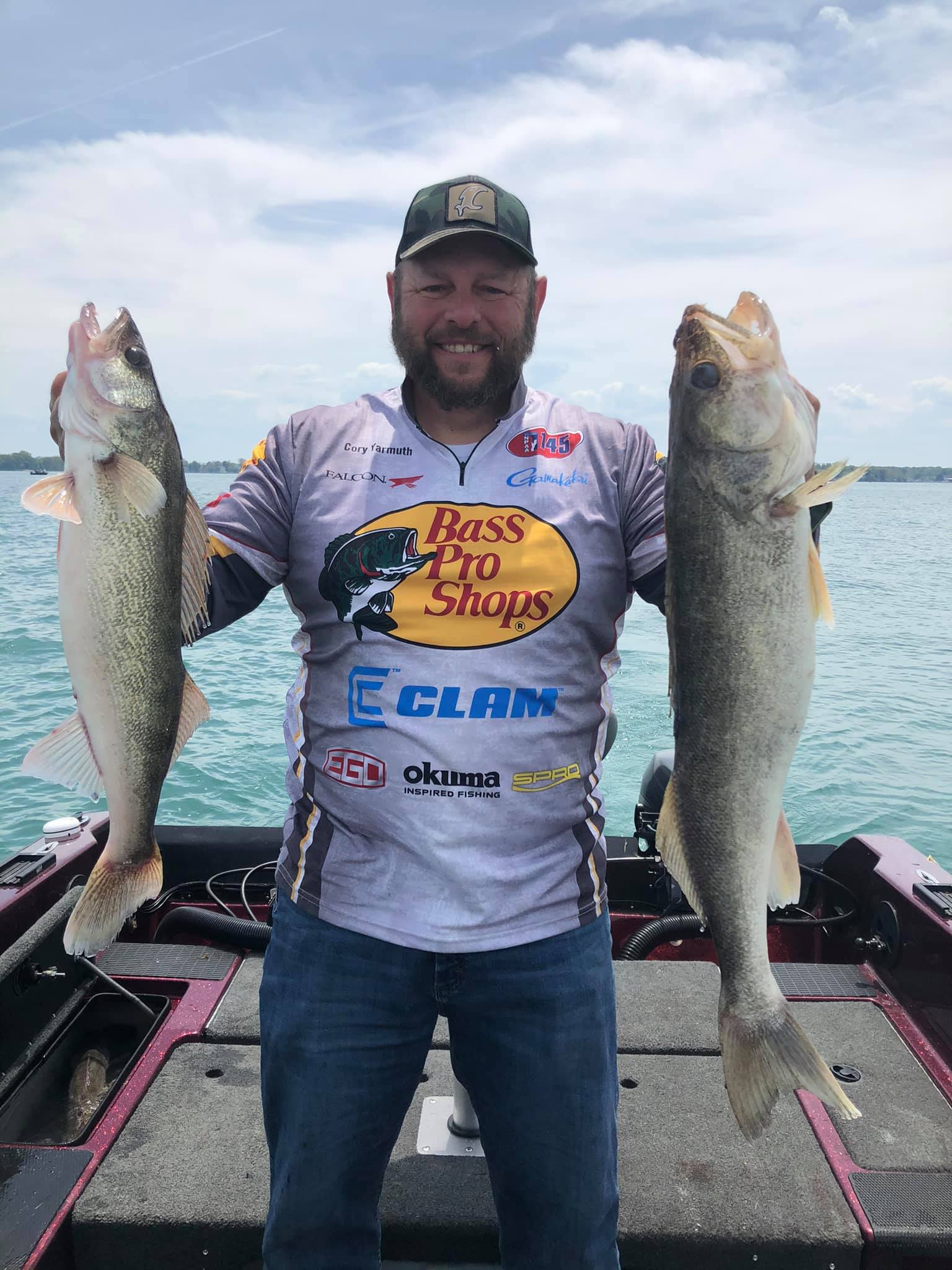The colder months are soon approaching and as we head for the deer woods or the duck ponds we tend to leave important things behind. Sitting at home is one of the most important tools in your fishing adventures. Your boat is sitting there just begging to be used, but most importantly you need to make sure that your boat is ready to be used when the time does come.
I don’t know about others, but as far as my fishing goes my boat gets a workout year round. The cold winter months certainly don’t stop me from breaking some ice at the ramps of Lake Michigan to chase after some trophy trout. In order to do this it is important that my boat be ready to go and also be ready to sit in the garage for extended periods of time as well. My boat gets some special treatment during the winter months and so should yours.
There are a few things that you can do to “winterize” your boat, but still keep it ready for action when the time comes. Pay attention to some of the details and you won’t be disappointed in your boats performance.
Here are a few things that you will want to attack before the cold weather hits us hard:
1. Drain and replace the lower unit oil in the engine. You may have good seals; however there is always a chance that some water may have gotten into your oil and this will cause corrosion and in worst cases crack the housing. If you use your boat all fall and winter long, you will want to check the lower unit oil after each trip. When your lower unit heats up the seals will expand, however with the cold water the seals will shrink much quicker than normal and could “draw” in moisture. Doing a quick check is easy. Just remove the lower plug and let the unit “burp” out a little oil. Since oil will float and water will sink, if there is any water this will come out first. Follow your mfgs recommendations for the type of lower unit oil to use. Always replace the plug screws sealing gaskets when you change your oil as well.
2. Check the batteries for proper amount of water in them. If they are low use Distilled Water, not tap water. This may be a non-issue if you own some of the newer “gel cell” batteries. If the batteries are good, make sure you give them a full charge. If the boat is to be stowed for long periods of time then occasionally put a trickle charger on the batteries to keep them from discharging and causing the plates to fail prematurely.
3. Add a fuel stabilizer to your gas tank. This will not affect the operation of the motor if you decide to take it out in the winter, however if you do take it out and add fuel make sure you also add more stabilizer. You want to make sure the gas is treated so that you will not build up moisture in the tank, lines, or engine. This will also prevent the build-up of varnish in the filter and bowl of many engines. A good mixture that has proven to be quite effective on my outboard is a mixture of Startron and Seafoam. I use this mixture in my gas everytime I put any gas into the tank and it will keep the gas fresh for much longer. If you do end up letting the boat sit all winter without using it then it would be a good idea to drain the remaining gas in the spring and start with fresh gas.
4. As with any winterizing, you will want to fog the engine prior to storage and after any use. Carry a can with you on your outing and when you are done for the day, prior to putting the boat on the trailer, open the cowl of the engine and spray a good amount of fogging oil into the motor. If you plan on storing for a long period, it is recommended that your remove your plugs and spray into the cylinders so they are protected as well. Check the plugs when you do this and if they are fouled this is a good time to replace them.

5. If you plan on using your boat during the winter it is a good practice when you get off the water to completely drain the motor by leaving it in the down position as long as you can. There are some different schools of thought on water in the engine, but what I have seen in the past works well and that is to crank the engine a couple short cranks without starting it. This will push most of the remaining water out of the engine. (note: all engines are different so please follow your Mfg recommendations)
6. Make sure all the live wells and bilge area are free of standing water. This water will freeze pretty quickly. If the boat is going to be stored for a long period, use RV antifreeze in the lines. This is biodegradable and will keep the lines from freezing.
7. Lubricate any fittings that may need it, such as the shaft of the motor, the steering assembly, etc. This will keep them all in good working order and it will push any water out that may have collected in these areas.
These are a few of the major items to pay attention to on your boat, but what about that thing that it rides on? Yes, the trailer. Since you are already working on the boat you may as well maintain the trailer.
There are several shops in the area that will do a bearing service for you or you can do it yourself. Either way each fall you should have the bearings removed, cleaned or replaced and new oil seals put on. (Frequency can also depend on how much and how far you trailer your boat) This will help with any water that may have been trapped in the hubs will be removed and you will be able to prevent a future “break-down” while traveling to your next fishing or hunting spot.
When using the trailer in the winter you will want to make sure your lights are in good working order and are sealed. Also when launching a boat after traveling for a good distance, the hubs will be warm and if submersed in the chilly water of the fall and winter the seals will shrink quickly and draw water in. After each launch pump some new grease into the bearings to push any water out that may have been introduced during the trip. If you notice a large amount of water, remove the bearing protectors and inspect the bearings. You may have a problem with your seals and this is a good time to fix this problem.
Owning a boat can be a fun and enjoyable adventure, but preventative maintenance is a must. It is a good idea to take these preventative measures so that way when you do go to use your boat you can be sure that everything will work out just fine. While others are sitting inside wishing they were out fishing you have prepared in advance and are able to be out there taking advantage of every last open water opportunity.



